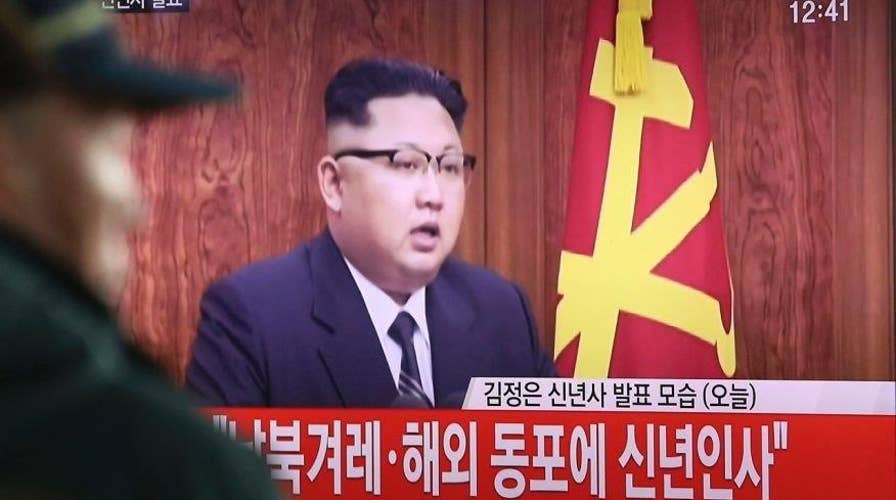North Korea's leader hints of long-range missile test launch
Kim Jong Un discussed missile testing in New Year's address
SEOUL – More North Koreans are fleeing their country for political reasons, rather than economic reasons, and an increase in defections by Pyongyang’s elite will ultimately weaken Kim Jong Un’s regime, South Korea’s unification minister said in an interview.
Hong Yong-pyo, who heads the Ministry of Unification, expects to see more defectors like Thae Yong Ho, the North Korean deputy ambassador in London, whose defection to Seoul last year was the most high-profile in nearly two decades. The support of North Korea’s top government officials is crucial to ensuring Mr. Kim’s continued rule.
A crippling famine triggered the first major wave of defectors from North Korea about 20 years ago, but many now say that they are leaving the country “not just because they are starving, but for a better life, and for freedom and for their children’s education,” Mr. Hong said.
Related stories...
The cumulative number of defectors has swelled to more than 30,000, making them a sizable and growing community in the South. Last year, South Korea’s President Park Geun-hye urged North Koreans to defect to the south to seek a better life—an unprecedented call for any South Korean leader.
A looming change in government in Seoul could derail that approach. Ms. Park was recently impeached over an influence-peddling scandal and polls show a candidate supportive of warmer North-South ties is likely to take power soon. The progressive administrations that governed South Korea between 1998 and 2008 tended to take a more conciliatory view toward Pyongyang, and de-emphasized support for defectors.
But Mr. Hong said the political divide over support for defectors is long gone. “Whoever becomes the president, whichever party has the power, by and large we have a consensus that we should assist and support defectors as they enter South Korean society,” Mr. Hong said.

